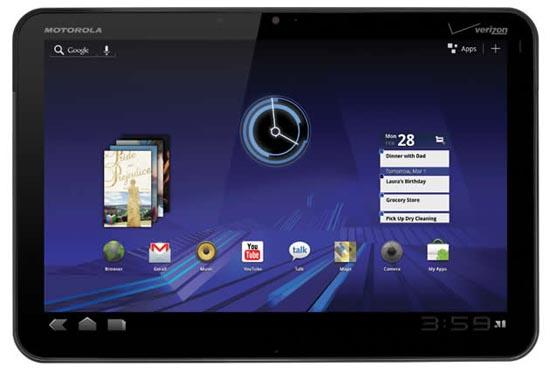
Since the launch of Android, we’ve seen several different versions of the mobile OS find their way onto smartphones. And, more recently, we’ve seen the same tidal wave of software find its way onto tablet devices. Android software versions are one of the most compelling attributes to Google’s platform, even if it is also one of the most aggravating. Google does a good job of trying to keep Android fresh, which is a good argument for anyone trying to choose Android over another mobile platform.
However, as we’ve seen at least one hundred times now over the years, not every device gets to have official access to those new features, or that fresh paint job. And it’s not just smartphones that get left out in the wind, either. No, tablets are just as easy to succumb to all sorts of different red tape, which ultimately leads to a lack of software updates.
Worse, though, is that the Android tablet market is missing one huge feature: tablet apps. If you are new to the tablet market, and haven’t been paying any attention, then you would probably be shocked to pick up a tablet running Android, find an app, and suddenly realize you’ve just downloaded the smartphone app. There’s a real lack of tablet-specific applications within the Google Play Store, and that’s a big red checkmark in the negative column for a lot of would-be buyers.
Is there an easy fix? Maybe. Maybe not. I’m sure there are developers out there who want nothing more than to create tablet-specific applications, while also creating apps for the wide range of smartphones out there, but there’s obviously something that doesn’t make it worthwhile. I say this judging it by the fact that there are still a remarkable lack of tablet-specific apps out there.
So what could be the easy fix? Or a fix in general? We’ve seen Google make an attempt at creating a tablet-specific mobile OS in the past, with the release of Android 3.x, or Honeycomb. While there were plenty of people upset about the fact that Android 3.x wasn’t intended for smartphones, the move made sense on a wide scale. Android for tablets and smartphones are different beasts, just as Taylor has pointed out in regards to tablet ROMs being released for smartphones.
A tablet is a tablet, and Google was honestly onto something with the release of Honeycomb. There should be a tablet-specific version of Android out there. Google made this huge deal about how Android 4.x would be the version of Android to bring together the tablet and smartphone experience, but other than a few software features, it really hasn’t.
Android 4.x is starting to find its way onto more devices, which is great news for the platform on a whole. But, if Android 5.x, or Jelly Bean, is indeed being readied to launch sooner than later, people won’t care about 4.x anymore. At least, not in the same way they do now. Google could avoid that by releasing the next version of Android as a tablet-specific version of the platform, and making sure developers get on board.
Updates for the tablet OS could be slower, more methodical. That way developers won’t get washed away in supporting different versions. Every tablet that meets a specific hardware requirement would launch with it, and every tablet that meets the requirements that has already been launched gets updated. Just make it happen. That puts your tablet users on the same playing field, and it gives developers a chance to create apps specific for tablets, without having to stress so much about version numbers.
Yes, developers who choose to create apps for tablets and smartphones would still have to deal with the different Android versions littering the smartphone market, and obviously tablets would have different display sizes, resolutions and processors, but these are variables that will never change. Having a dedicated tablet OS is just one way we could start seeing a push for a tablet-specific experience on our bigger devices.
What do you think? Should Android go back to having a tablet-specific OS version? Let me know in the comments below.